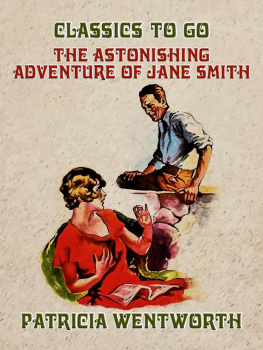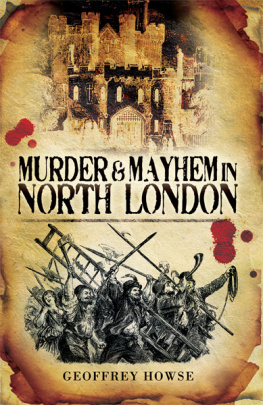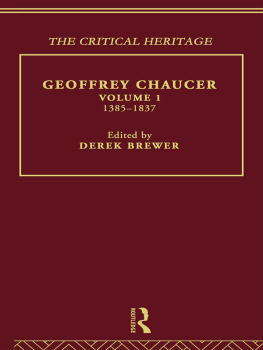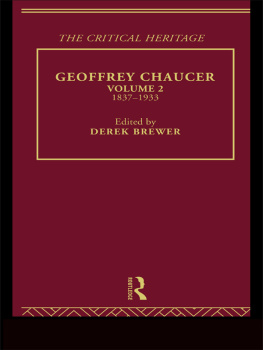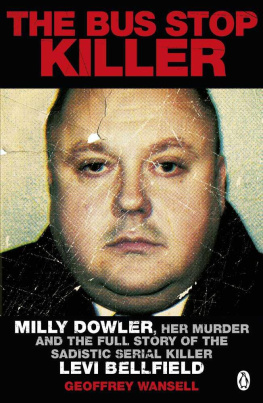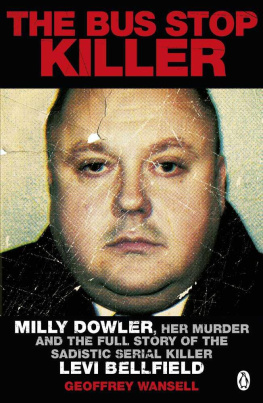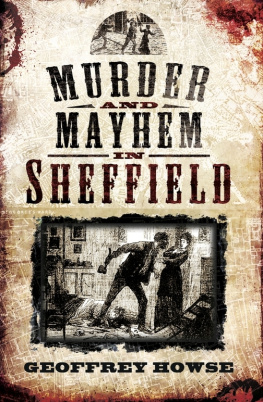Patricia Wentworth - The Case Is Closed
Here you can read online Patricia Wentworth - The Case Is Closed full text of the book (entire story) in english for free. Download pdf and epub, get meaning, cover and reviews about this ebook. genre: Detective and thriller. Description of the work, (preface) as well as reviews are available. Best literature library LitArk.com created for fans of good reading and offers a wide selection of genres:
Romance novel
Science fiction
Adventure
Detective
Science
History
Home and family
Prose
Art
Politics
Computer
Non-fiction
Religion
Business
Children
Humor
Choose a favorite category and find really read worthwhile books. Enjoy immersion in the world of imagination, feel the emotions of the characters or learn something new for yourself, make an fascinating discovery.

- Book:The Case Is Closed
- Author:
- Genre:
- Rating:3 / 5
- Favourites:Add to favourites
- Your mark:
- 60
- 1
- 2
- 3
- 4
- 5
The Case Is Closed: summary, description and annotation
We offer to read an annotation, description, summary or preface (depends on what the author of the book "The Case Is Closed" wrote himself). If you haven't found the necessary information about the book — write in the comments, we will try to find it.
The Case Is Closed — read online for free the complete book (whole text) full work
Below is the text of the book, divided by pages. System saving the place of the last page read, allows you to conveniently read the book "The Case Is Closed" online for free, without having to search again every time where you left off. Put a bookmark, and you can go to the page where you finished reading at any time.
Font size:
Interval:
Bookmark:

Patricia Wentworth
The Case Is Closed
Miss Silver #02, 1937
CHAPTER ONE
Hilary Carew sat in the wrong train and thought bitterly about Henry. It was Henrys fault that she was in the wrong train indisputably, incontrovertibly, and absolutely Henrys fault, because if she hadnt seen him stalking along the platform with that air, so peculiarly Henryish, of having bought it and being firmly determined to see that it behaved itself, she wouldnt have lost her nerve and bolted into the nearest carriage. The nearest carriage happened to be a third-class compartment in the train on her right. It was now perfectly obvious that she ought to have got into the train on the other side. Instead of being in the local train for Winsley Grove, stopping every five minutes and eventually arriving at 20 Myrtle Terrace in time to have tea and rock cakes with Aunt Emmeline, she was in a corridor train which was going faster every minute and didnt seem to have any intention of stopping for hours.
Hilary stared out of the window and saw Henrys face there. It was a horrible wet, foggy afternoon. Henry glared back at her out of the fog. No, glared wasnt the right word, because you dont glare unless youve lost your temper, and Henry didnt lose his temper, he only looked at you as if you were a crawling black beetle or a frightfully naughty small child. It was more effective losing your temper of course, only you couldnt do it unless you were made that way. Hilarys own temper was the sort that kicks up its heels and bolts joyously into the heart of the fray. She sizzled with rage when she remembered the Row the great Breaking-off-of-the-Engagement Row and Henrys atrocious calm. He had looked at her exactly as he had looked at the station just now. Superior, that was what Henry was damned superior. If he had asked her not to go hiking with Basil, she might have given way, but to tell her she wasnt to go, and on the top of that to inform her that Basil was this, that, and the other, all of which was none of Henrys business, had naturally made her boil right over.
The really enraging part was that Henry had proved to be right after the Row, and when she had begun to hike with Basil and hadnt got very far. Only by that time she had told Henry exactly what she thought about him and his proprietary airs, and had finished up by throwing his engagement ring at him very hard.
If he had lost his temper even then, they might have made it up, flashed into understanding, melted again into tenderness. But he had been calm calm when she was breaking their engagement! A ribald rhyme bobbed up in Hilarys mind. She had a private imp who was always ready with irreverent doggerel at what ought to have been solemn moments. He had got her into dreadful trouble when she was six years old with a verse about Aunt Arabella, now deceased:
Aunt Arabella has a very long nose.
Nobody knows
Why it grows
So long and so sharp and as red as a rose.
She hadnt ever been very fond of Aunt Arabella, and after the rhyme Aunt Arabella had never been very fond of her.
The imp now produced the following gem:
If only Henry could get in a rage,
We shouldnt have had to disengage.
This was most sadly true.
The disengagement was now a whole month old.
It is very difficult to go on being angry for a whole month. Hilary could get angry with the greatest of ease, but she couldnt stay angry, not for very long. About half-way through the month she had begun to feel that it was about time Henry wrote and apologised. In the third week she had taken to watching for the post. For the last few days the cold and dreadful prospect of a future devoid of rows with Henry had begun to weigh upon her a good deal. It was therefore very heartening to be able to feel angry again.
And then imagination played her one of its really low tricks. Henrys eyes looking back at her out of the fog, looking back at her out of her own mind, ceased to look scornfully, ceased to look haughtily into hers. They changed, they smiled, they looked at her with love And they wont again ever not ever any more. Oh, Henry! It was just as if someone had suddenly jabbed a knife into her. It hurt just like that. One moment there she was, quite comfortably angry with Henry, and the next all stabbed and defenceless, with the anger running away and a horrid cold sinking feeling inside her. The back of her eyes stung sharply -If you think youre going to cry in a public railway carriage
She blinked hard and turned back from the window. Better not look out any more. The mist played tricks made you feel as if you were alone, made you think about things that you simply were not going to think about, and all the time instead of being such a mutt, what youd got to do was to find out where the blighted train was going and when it was likely to stop.
There had been two other people in the carriage when she got in. They were occupying the inside corner seats, and they had made no more impression on her than if they had been two suit-cases. Now, as she turned round, she saw that one of them, a man, had pushed back the sliding door and was going out into the corridor. He passed along it and out of sight, and almost immediately the woman who had been sitting opposite him moved in her seat and leaned a little forward, looking hard at Hilary. She was an elderly woman, and Hilary thought she looked very ill. She had on a black felt hat and a grey coat with a black fur collar -the neat inconspicuous clothes of a respectable woman who has stopped bothering about her appearance, but is tidy from habit and training. Under the dark brim her hair, face, and eyes were of a uniform greyish tint.
Hilary said, Ive got into the wrong train. It sounds awfully stupid, but if you could tell me where were going I dont even know that.
A curious little catch came up in the womans throat. She put up her hand to the collar of her coat and pulled at it.
Ledlington, she said. First stop Ledlington. And then, with the catch breaking her voice, Oh, miss, I knew you at once. Thank God he didnt! And hell be back any minute -hed never have gone -not if hed recognised you. Oh, miss!
Hilary felt something between pity and repulsion. She had never seen the woman before. Or had she? She didnt know. She began to think she had, but she didnt know where. No, it was nonsense she didnt know her, and the poor creature must be mad. She began to wish that the man would come back, because if the woman was really mad she was between her and the corridor -
Im afraid, she began in a little polite voice, and at once the woman interrupted her, leaning right forward.
Oh, miss, you dont know me I saw that the way you looked at me. But I knew you directly you got in, and Ive been hoping and praying Id get the chance to speak to you.
Her black gloved hands were gripping one another, the kid stretched across the knuckles, the finger ends sticking out because they were too long. The fingers inside them twisted, plucked, and strained. Hilary watched them with a sort of horror. It was like watching something with pain.
She said, Please
The womans voice went on, urgent, toneless, with the catch, not quite a cough, breaking it.
I saw you in the court when the trial was on. You come in with Mrs. Grey, and I asked who you was, and they told me you was her cousin Miss Carew, and then I minded Id heard speak of you -Miss Hilary Carew.
The fear went out of Hilary and a cold anger stiffened her. As if it wasnt enough to live through a nightmare like Geoffrey Greys trial, this woman, one of the horrible morbid crowd who had flocked to watch his torture and Marions agony this damned woman, because she had recognised her, thought she had an opportunity to pry, and poke, and ask questions. How dare she?
Next pageFont size:
Interval:
Bookmark:
Similar books «The Case Is Closed»
Look at similar books to The Case Is Closed. We have selected literature similar in name and meaning in the hope of providing readers with more options to find new, interesting, not yet read works.
Discussion, reviews of the book The Case Is Closed and just readers' own opinions. Leave your comments, write what you think about the work, its meaning or the main characters. Specify what exactly you liked and what you didn't like, and why you think so.

